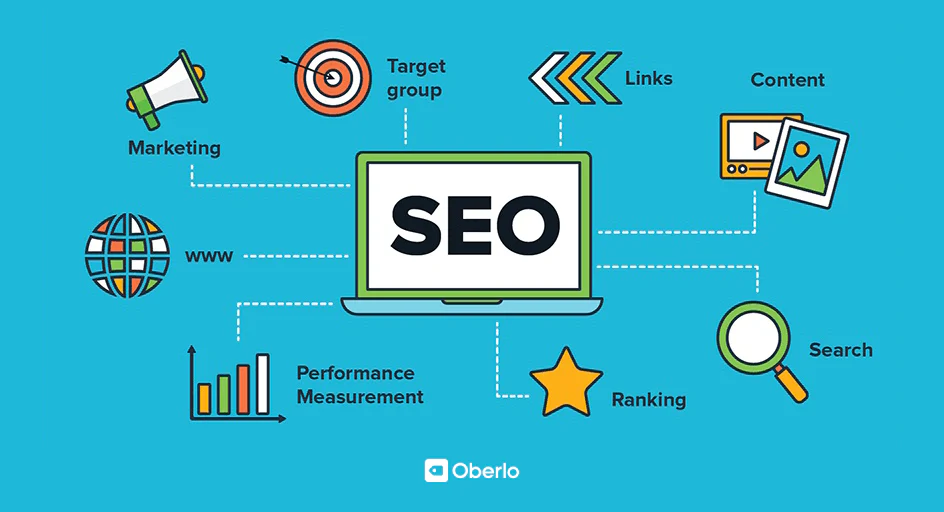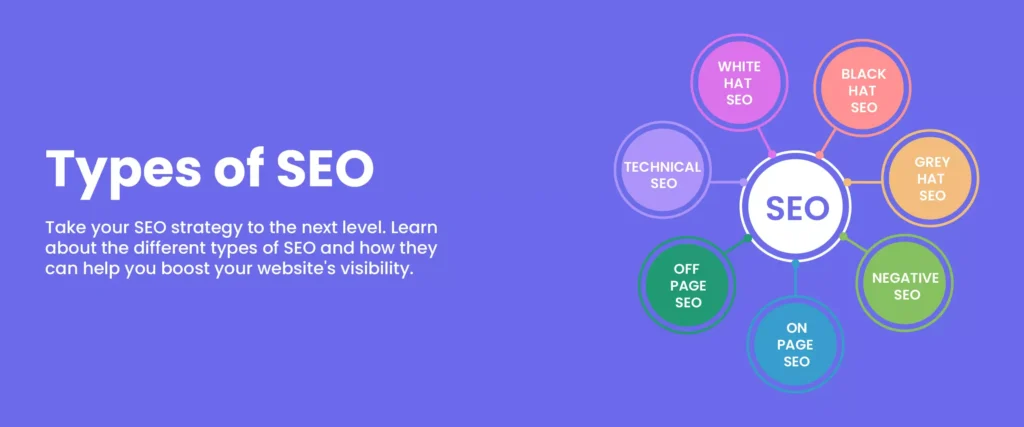SEO stands for Search Engine Optimization. It is the process of improving a website so that it appears higher on search engines like Google. When people search for something online, they usually click on the top results. SEO helps websites reach those top spots. It is not about tricking Google, but about making your website better for users and search engines.
Good SEO means your website has helpful content, uses the right keywords, and loads fast. It also means your site is mobile-friendly and easy to navigate. SEO includes both the content you write (on-page SEO) and things outside your website, like backlinks (off-page SEO). The main goal of SEO is to bring more visitors to your site naturally, without paying for ads. If done correctly, SEO helps grow your online presence, build trust, and increase sales or engagement over time.
What is SEO?

SEO stands for Search Engine Optimization. It is a method used to improve the visibility of a website in search engine results like Google, Bing, or Yahoo. When people search for something online, they usually click on the first few results. SEO helps your website come up in those top results without paying for ads. It’s a natural or “organic” way to get more visitors.
SEO works by using the right keywords, creating quality content, and making sure your website is easy to use. If your website has useful information, loads quickly, works well on mobile phones, and is well-organized, search engines are more likely to show it to users.
There are two main types of SEO: On-Page SEO and Off-Page SEO. On-Page SEO includes things you can control on your website, like titles, headings, images, and content. Off-Page SEO includes things like backlinks, which are links from other websites to your site.
SEO is important because it helps your website get found by the right people. It increases your online presence, builds trust, and can even help grow your business. Whether you have a blog, a small business, or an online store, using SEO can help bring more traffic and improve your success over time. It takes time and effort, but the results are worth it.
Why is SEO Important?

SEO (Search Engine Optimization) is very important for any website or online business because it helps your site appear in search engine results when people look for things related to your content. Imagine you have a website for your business, but no one can find it because it’s buried on the 10th page of search results. That means fewer people will visit, and your business might not grow. SEO helps fix that by improving your site’s ranking, making it more likely that people will find you.
When you use SEO, you’re not just making your site visible to search engines like Google; you’re also improving the user experience. A well-optimized website is fast, easy to use, and has quality content, which helps visitors find what they’re looking for quickly. SEO also helps build trust with search engines and users. Websites that rank higher are often seen as more reliable and relevant.
In today’s world, most people use search engines to find products, services, or information. Without SEO, your website could easily be lost among the millions of other sites on the internet. SEO helps your website stand out, reach the right audience, and attract more organic traffic. This can lead to more customers, higher sales, and a stronger online presence, making SEO an essential tool for anyone wanting to succeed online.
How Does SEO Work?
SEO (Search Engine Optimization) works by helping your website show up in search engine results when people search for things related to your content. The goal of SEO is to make your website easy to find and attractive to both search engines and users. Here’s how it works:
First, search engines like Google use special programs called “crawlers” or “bots” to visit websites and gather information. These bots look at your content, like words, images, and links, to understand what your site is about. Once they’ve gathered the information, they rank your website based on how relevant and useful it is to a search query.
To rank higher, your website needs to have quality content, relevant keywords, and user-friendly features. This means using words that people are likely to search for, making your site easy to navigate, and ensuring it loads quickly. SEO also involves building backlinks, which are links from other websites to your site. These backlinks show search engines that other sites trust your content.
The better your website is at answering people’s questions and providing useful information, the higher it will rank in search results. SEO is an ongoing process because search engines constantly update their algorithms, so it’s important to keep improving your site over time to maintain good rankings and drive more traffic.
Types of SEO

SEO (Search Engine Optimization) can be divided into three main types: On-Page SEO, Off-Page SEO, and Technical SEO. Each of these plays an important role in improving your website’s search engine rankings.
- On-Page SEO: This type of SEO focuses on everything you can do directly on your website. It includes things like using the right keywords in your content, making sure your page titles and meta descriptions are clear, and having well-organized headings. On-page SEO also involves ensuring your website has good content that’s valuable to visitors and is easy to read. The better the user experience, the better your website will perform in search rankings.
- Off-Page SEO: This type refers to activities that happen outside your website but still affect your search engine rankings. The most important part of off-page SEO is building backlinks. Backlinks are links from other websites to yours. When reliable and relevant sites link to your website, search engines see it as a sign that your site is trustworthy and authoritative.
- Technical SEO: This focuses on improving the technical aspects of your website to help search engines crawl and index your site more effectively. It includes things like improving page speed, making sure your website is mobile-friendly, fixing broken links, and having an XML sitemap. Technical SEO ensures that search engines can access and understand your site easily.
Each type of SEO works together to improve your website’s visibility and ranking on search engines.
Steps to Improve SEO
Improving your website’s SEO is essential for ranking higher in search engine results. Here are some easy steps you can take to boost your SEO:
- Keyword Research: Start by finding the right keywords for your content. Use tools like Google Keyword Planner to discover what words and phrases people are searching for. Once you have the right keywords, include them in your content, titles, and meta descriptions.
- Create High-Quality Content: Write content that is useful and informative for your audience. Content that answers people’s questions or solves their problems is more likely to rank well. Make sure your content is original and provides value.
- Optimize Your Website’s Structure: Make sure your website is easy to navigate. Use clear headings, well-organized menus, and links that help users find what they need quickly. Also, ensure your website is mobile-friendly, as many users access websites from their phones.
- Improve Page Load Speed: Slow websites can harm your rankings. Ensure your pages load quickly by compressing images, reducing the number of plugins, and choosing a reliable hosting provider.
- Build Backlinks: Get other reputable websites to link to your content. Backlinks act as votes of confidence, signaling to search engines that your website is trustworthy and authoritative.
- Use Social Media: Share your content on social media platforms to drive traffic to your site. The more people visit and engage with your content, the more likely it is to rank well.
By following these steps, you can steadily improve your website’s SEO and attract more visitors!
Common SEO Mistakes to Avoid

When working on SEO, it’s easy to make some mistakes that can hurt your website’s ranking. Here are some common SEO mistakes you should avoid:
- Not Using the Right Keywords: Keywords are important for SEO. Using the wrong ones, or not using enough of them in your content, can make it hard for search engines to understand what your page is about. Always research and choose the right keywords for your audience.
- Ignoring Mobile Users: More people are browsing the web on their phones. If your website isn’t mobile-friendly, you could lose visitors and rank lower on search engines. Make sure your site is easy to use on all devices.
- Slow Website Speed: If your website loads slowly, visitors may leave before it fully loads, and search engines may rank you lower. Improve your site speed by optimizing images and removing unnecessary plugins.
- Overstuffing Keywords: While keywords are important, overusing them can harm your ranking. This is known as “keyword stuffing.” It makes your content harder to read and can lead to penalties from search engines.
- Not Updating Content: Search engines love fresh, relevant content. If you don’t update your website regularly, you may fall behind competitors who do. Keep your content updated to stay relevant and attract more visitors.
- Ignoring Local SEO: If your business targets local customers, don’t forget about local SEO. This includes things like setting up a Google My Business profile and using location-based keywords.
Avoiding these common SEO mistakes can help you improve your website’s ranking and attract more visitors.
Conclusion
SEO (Search Engine Optimization) is a powerful tool for improving your website’s visibility and increasing its chances of ranking higher on search engines like Google. By using the right combination of on-page, off-page, and technical SEO strategies, you can make your website more accessible to search engines and more useful to visitors.
On-page SEO ensures your content is relevant and well-structured, off-page SEO builds your website’s reputation through backlinks, and technical SEO focuses on the behind-the-scenes work that helps search engines crawl your site efficiently. SEO is an ongoing process that requires consistent effort, but when done right, it can bring more organic traffic, better user engagement, and long-term success to your website. Keep learning and updating your SEO practices to stay ahead in the competitive online world.
FAQs
What is SEO?
SEO stands for Search Engine Optimization. It’s the process of improving your website so it appears higher in search engine results, making it easier for people to find.
Why is SEO important?
SEO is important because it helps your website get noticed by search engines, which increases your visibility, brings more visitors, and helps grow your business.
What is Technical SEO?
Technical SEO improves the backend of your website to help search engines crawl and index it better. This includes making your site faster and mobile-friendly.
Do I need to pay for SEO?
SEO can be done for free with knowledge and effort. However, hiring professionals can speed up the process and bring quicker results.
What are keywords in SEO?
Keywords are words or phrases that people type into search engines. Using the right keywords in your content helps your website rank higher.

